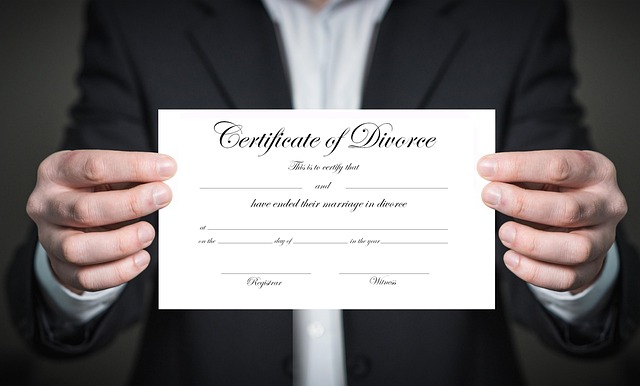Oregon's extensive network of legal assistance commitments prioritizes equal access to justice for all residents, regardless of financial background. The state supports individuals through non-profit organizations and legal aid societies addressing various legal concerns, including family law, housing, consumer rights, and immigration. It also fosters self-representation with tools and resources for pro se litigants. These legal assistance commitments cover a wide range of civil and criminal matters, offering comprehensive support from document preparation to court representation. Accessing these services requires understanding diverse programs and eligibility criteria, with applications based on income, residency, and case urgency. The result is empowered individuals and communities navigating complex legal matters with enhanced legal literacy.
Oregon’s legal commitment resources offer vital support to individuals seeking legal aid. This article delves into the state’s comprehensive approach to ensuring access to justice, exploring key aspects of its legal assistance commitments. From eligibility criteria to the range of covered services and application procedures, we provide an in-depth guide. Additionally, we highlight success stories, showcasing the significant impact of these programs on Oregonians’ lives. Understanding and leveraging these resources is a crucial step towards navigating Oregon’s legal landscape effectively.
- Understanding Oregon's Legal Assistance Commitments: An Overview
- Who is Eligible for Legal Commitment Resources in Oregon?
- Types of Legal Services Covered Under Commitments
- Navigating the Application Process for Legal Assistance
- Success Stories and Impact of Legal Commitment Programs in Oregon
Understanding Oregon's Legal Assistance Commitments: An Overview

Oregon stands out among U.S. states for its robust network of legal assistance commitments, designed to ensure access to justice for all residents. These commitments encompass a range of services, from free or low-cost legal aid to self-help resources and education programs. The state’s dedication to these initiatives reflects a growing recognition of the importance of legal literacy and representation in navigating complex legal systems.
For individuals facing financial barriers to legal services, Oregon offers numerous non-profit organizations and legal aid societies that provide direct legal assistance. These entities cover a wide array of legal issues, including family law, housing, consumer rights, and immigration. Moreover, the state’s commitment extends to promoting pro se (self-represented) litigants by offering tools, workshops, and online resources tailored to help them navigate court procedures effectively.
Who is Eligible for Legal Commitment Resources in Oregon?

In Oregon, individuals from diverse backgrounds can access legal commitment resources designed to ensure equal access to justice. Eligibility for these services is based on financial need rather than specific circumstances, meaning anyone facing legal challenges who cannot afford an attorney can apply. The state’s legal assistance commitments aim to cover a wide range of civil and criminal matters, providing essential support to those who might otherwise struggle to navigate the complexities of the legal system.
Oregon’s commitment to legal assistance extends to various groups, including low-income individuals, families, seniors, veterans, and people with disabilities. The state’s legal aid organizations and private attorneys admitted to the Pro Bono Program are dedicated to offering pro bono services, ensuring that eligibility is not a barrier to justice. By leveraging these resources, Oregon residents can secure legal representation, gain access to court proceedings, and better understand their rights and options in various legal matters.
Types of Legal Services Covered Under Commitments

Oregon’s legal commitment resources offer a diverse range of services designed to support individuals and families in navigating complex legal matters. These commitments cover various types of legal assistance, ensuring comprehensive support across different legal domains. From probate and estate planning to family law and criminal defense, the state’s commitment programs aim to make quality legal representation accessible to all.
Specific areas of coverage include preparing and filing legal documents, providing advice and guidance during legal processes, representing clients in court proceedings, and assisting with alternatives to litigation. These services are crucial in helping individuals understand their rights, make informed decisions, and effectively manage their legal issues. Whether it’s ensuring a will is valid, resolving family conflicts, or fighting criminal charges, legal assistance commitments play a pivotal role in Oregon by bridging the gap between legal expertise and those in need of support.
Navigating the Application Process for Legal Assistance

Navigating the application process for legal assistance in Oregon can be a complex task, but with the right resources and guidance, it becomes more manageable. The state offers various programs under its legal commitment resources initiative to ensure access to justice for all residents. Potential applicants should start by researching the different types of legal aid available, such as criminal defense, family law, and civil rights assistance. Each category has specific eligibility criteria based on income, residency, and case urgency.
The application process typically involves filling out detailed forms that require personal information, financial details, and a description of the legal issue at hand. It’s crucial to provide accurate and comprehensive information to increase the chances of approval. Once an application is submitted, it goes through a screening process to determine eligibility and the appropriate level of legal assistance. This may include interviews or further documentation requests from the designated legal aid organizations.
Success Stories and Impact of Legal Commitment Programs in Oregon

Oregon’s legal commitment programs have yielded remarkable success stories, showcasing their impact on empowering individuals and communities. These initiatives provide free or low-cost legal assistance to those who cannot afford traditional legal services, ensuring equal access to justice. By offering a range of services, from civil rights advocacy to family law support, these programs have made significant strides in addressing societal issues. For instance, many participants have successfully navigated complex legal matters, such as securing fair housing, protecting their consumer rights, and obtaining custody of their children.
The impact extends beyond individual cases; these programs contribute to building stronger communities. They foster legal literacy, empowering residents to understand and assert their rights. Moreover, by reducing financial barriers to justice, they encourage more people to seek legal aid when needed. As a result, Oregon’s legal commitment resources have not only provided direct assistance but also contributed to a more informed and resilient citizenry.
